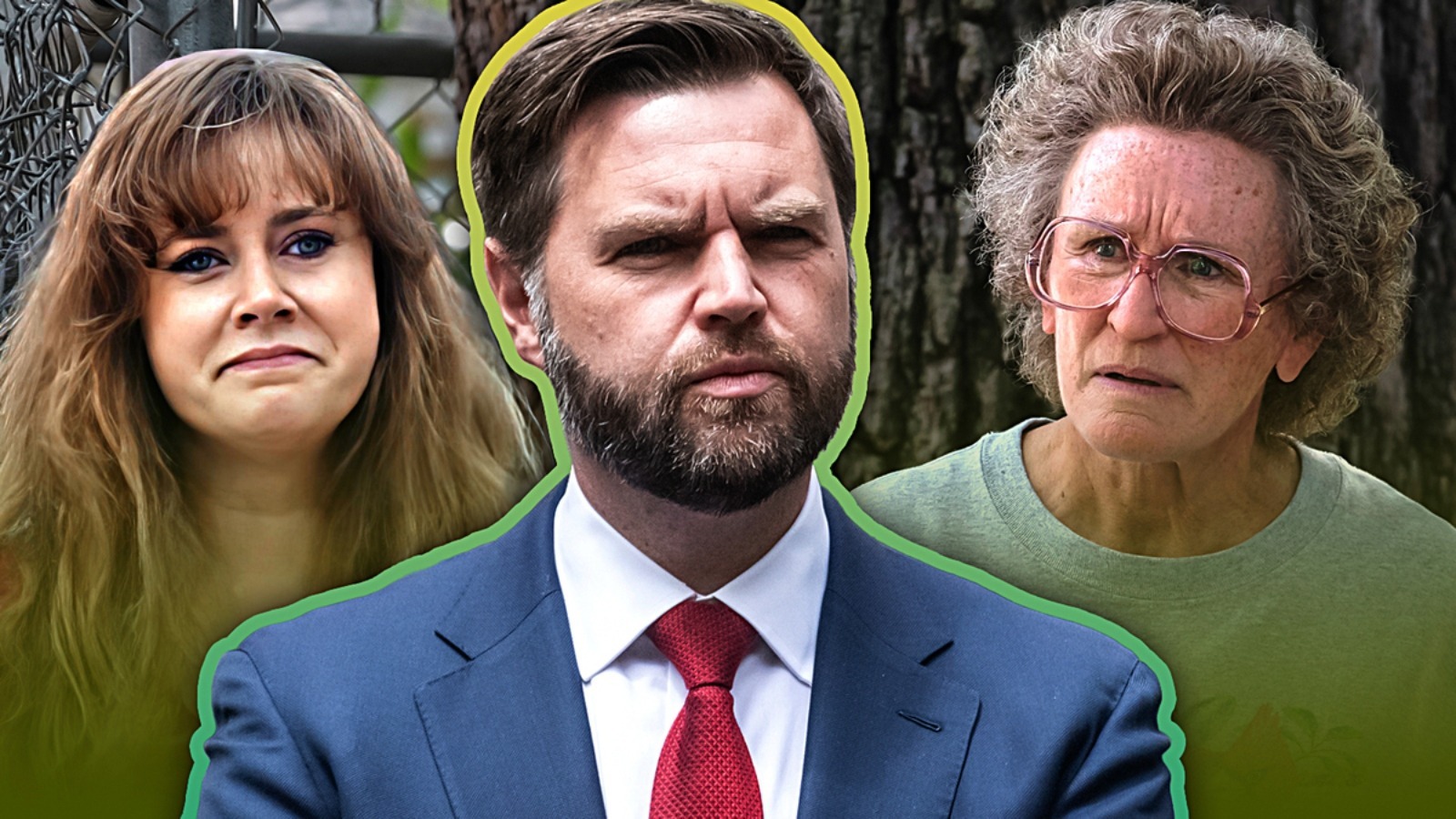
Richard Brody, writing for the New Yorker, also noted the eerie disconnect within the film’s politics. It purports to take a hard look at impoverished white people, but has no interest in examining its own politics. “Elegy,” Brody wrote, oversimplifies major American issues, and falls in an unsavory place:
“The movie’s vision of America is one of “nothing” except self-interest and self-improvement; it’s one in which the only reach beyond the self is the one that embraces family, in which pleasure is a distraction and a danger, and culture is a fraud and a lure. With his soupy, impersonal manipulations of memory and experience, void of the burrs that attach them to the world at large, Howard, whether intentionally or not, has made a libertarian’s fantasy.”
Howard may not have known, but Vance was explicit.
Darren Franich, writing for Entertainment Weekly, gave the film an F, pointing out that Vance leaves out the actual parts of his own struggle. The story centers on Vance’s curious braggadocio, as if he made the film to brag about his ability to get into Yale, rather than analyze the difficult parts of his journey. As Franich noted:
“Humanity: That’s one thing missing from ‘Hillbilly Elegy,’ and it’s missing entirely. Actual triumphs of spirit are hacked to pieces or left out. At one point, young J.D. gets good at Algebra, ditches his nameless go-nowhere friends, and finds a part-time job — all in a brisk montage. Closing chyrons explain that Bev got clean. Would’ve been interesting to see that, but then we might’ve missed J.D.’s own achievements. There’s an eerie myopia here, really, generations of trauma sacrificed at the altar of one man’s professional success.”
It’s all ego.


Leave a Reply